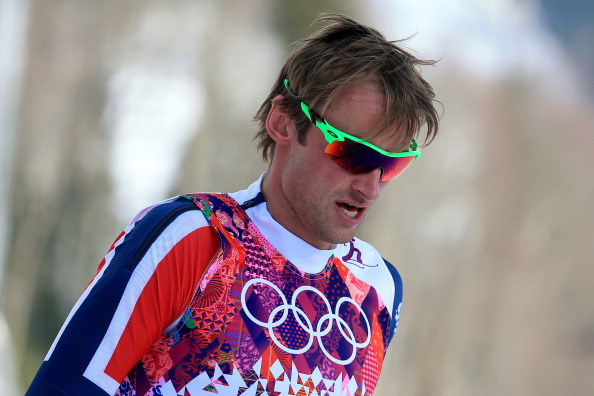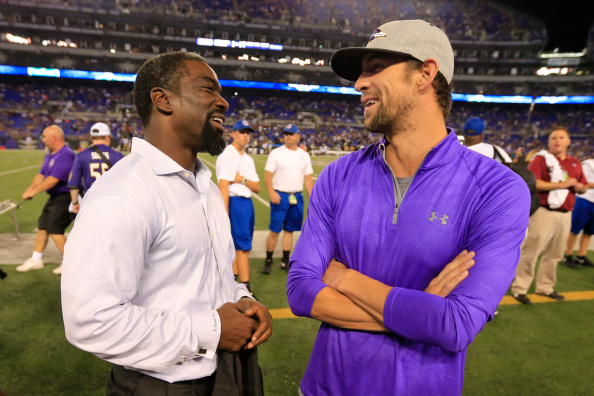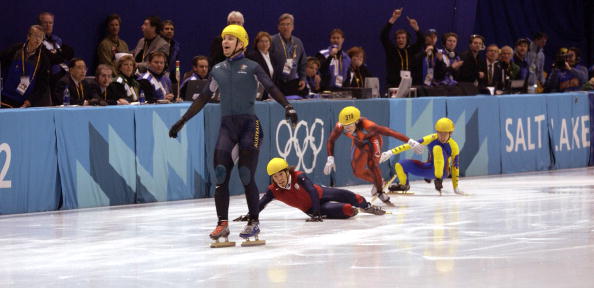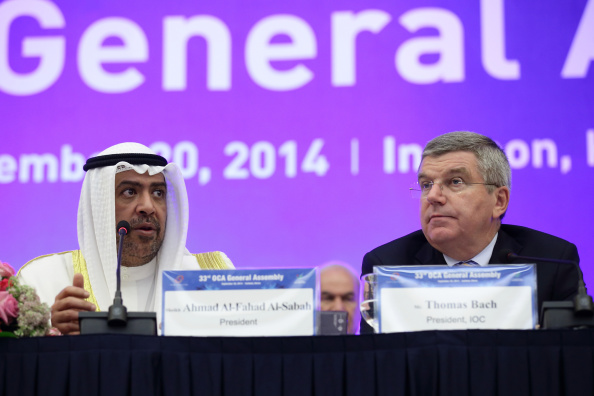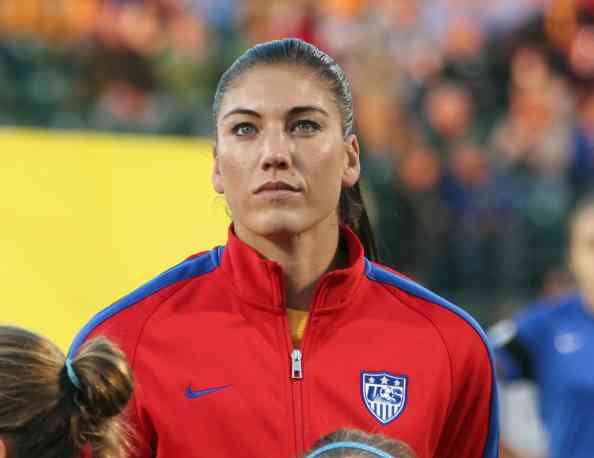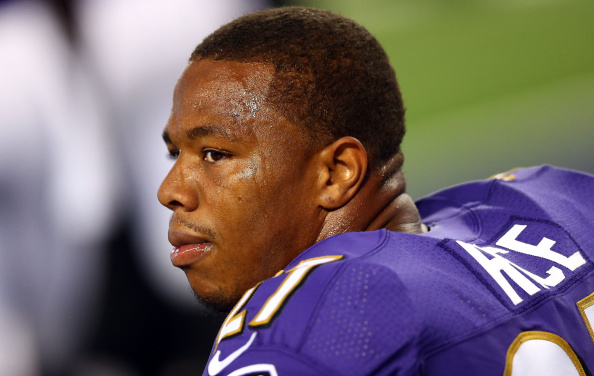Cross-country ski champion Petter Northug was sentenced last Thursday in court in Norway to 50 days behind bars after being convicted of drunk driving. Which brings us to Michael Phelps, the 24/7 media spin cycle we live in and the rush to judgment that led to the significant suspension USA Swimming levied against Phelps for his recent DUI arrest in Baltimore. What was to be gained by USA Swimming rushing to this judgment? More — what was lost by waiting?
Clearly, USA Swimming did what it felt like it needed to do. In some quarters, it is getting kudos for taking decisive action. But was it appropriate — or, better, right?
At issue are several thoroughly basic principles.
One, the media is not running anything. We can’t even run ourselves. Who cares if we are shouting? Or tweeting? Seriously. This is what is called a diversity of opinion. The counterpoint to that is called calm leadership.
Two, bad facts make for bad law. This is elemental. Phelps’ case is not one on which to make, or rest, broad-based policy.
Three, as everyone who has read Orwell knows, all the animals on the farm are not equal. Or are they? Which is it going to be?
To recap:
Phelps, 29, is charged with DUI, excessive speed and crossing double lane lines. Police stopped him outside the Fort McHenry tunnel at 1:40 a.m. on Tuesday, Sept. 30, saying he was going 84 in a 45 zone; he had spent the hours before at the Horseshoe Casino. Police say his blood alcohol level was 0.14; the state’s legal limit is 0.08. Phelps is due to appear in court on Nov. 19.
The arrest is Phelps’ second for drunk driving. He pleaded guilty to driving while impaired in 2004.
USA Swimming did not suspend him after the 2004 case.
Five years ago, British tabloids published a photo of Phelps with his face in a bong.
USA Swimming suspended him in 2009 for three months.
For those unfamiliar with cross-country skiing, Northug won four medals, two gold, at the Vancouver 2010 Games. When you include medals won at world championships, he is right up there with the legendary Bjorn Daehlie.
Northug, 28, crashed his Audi while driving the first week of May. His blood alcohol level was more than eight times the Norwegian legal limit, according to Reuters. Norway’s limit is 0.02. A friend who was in the car was slightly hurt. Northug was not injured.
Northug was also fined $30,000 and banned from driving for life; Associated Press said that “normally means a minimum of five years.”
The accident and aftermath have been front-page news for months in winter sports-crazed Norway. Northug said, according to reports, that the episode would “follow me throughout my whole life.”
Here is the kicker:
The Norwegian Ski Assn., according to AP, said it would not punish Northug because his accident “had nothing to do with competition or training.”
The association president, Erik Roeste, told the Norwegian news agency NTB, “It’s not in sports regulations to punish him from our side in any way.”
So how did USA Swimming come to sanction Phelps?
Through Section 304.3.19 of its rule book.
It allows sanctions for “any other material and intentional act, conduct or omission not provided for above, which is detrimental to the image or reputation of USA Swimming, a LSC (local swimming committee) or the sport of swimming.”
Six days after Phelps’ arrest, USA Swimming announced it had suspended him for six months and he had withdrawn, by mutual agreement with the federation, from the U.S. team for the 2015 world championships in Kazan Russia. He also agreed to forfeit a $1,750 USA Swimming stipend for six months.
Phelps’ arrest came amid the controversies that have enveloped the NFL and stirred headlines since the video surfaced — on Sept. 8 — of Ray Rice punching his then-fiancee in a casino elevator. You can be sure that played a part in the decision-making at USA Swimming.
The hammer came the day after Phelps announced he was headed to a six-week, in-patient treatment program.
Even if you decide that this arrest warrants sanction — that’s an entire column in and of itself — what was the goal here?
To penalize Phelps? Deter him or others? Rehabilitate him? Make sure he doesn’t drive drunk again? Send a message — to him, others on the national team or other swimmers in clubs across the United States?
Why was it so important to suspend Phelps when not even a week had passed?
Did acting so quickly make it more — or less — likely to achieve the objective? Which, again, was what?
Isn’t it more likely that we were all left with one obvious reality? That USA Swimming acted get itself out of the spotlight -- or, more precisely, to cover its backside amid media pressure?
So, now what?
Did anyone watch Ryan Lochte’s reality TV show? In the realm of possibility: were there off-camera escapades that might now bring embarrassment to USA Swimming? Do you think TMZ is asleep at that switch? Really?
Further, are we all willing to believe there isn’t even one coach affiliated with USA Swimming, or one athlete anywhere in the United States with a DUI that has yet to come to light? Truly? How soon before one such case emerges? Would any such case bring embarrassment to the federation? How much embarrassment?
You see how problematic this is?
What about this: reasonable people can agree to disagree about whether USA Swimming executive director Chuck Wielgus should or should not have drawn so much criticism earlier this year when he was nominated for the International Swimming Hall of Fame amid concern the federation should have done more to prevent sexual abuse by coaches.
In June, Wielgus formally apologized — four years after saying on national TV that he had nothing to apologize for.
Phelps apologized, too, and in short order after arrest.
These two scenarios admittedly are in many ways apples and oranges. However, the question is nonetheless worth posing, especially if you're asking forthright questions: big-picture, which of the two holds the greater potential to embarrass USA Swimming -- Phelps' situation, or Wielgus'?
The federation, it must be acknowledged, has taken undeniably constructive steps in reordering its safe sport policies. At the same time, right or not, fair or not, Wielgus found himself this summer in an uncomfortable spot.
So why is Phelps getting six months plus the Worlds?
The problem is there is no spelled-out policy here. A catch-all is not good enough.
Another problem: there is inconsistency in the broader U.S. Olympic sphere.
Compare:
Rule 4 of the U.S. Ski and Snowboard Assn.’s code says: “USSA members shall maintain high standards of moral and ethical conduct, which includes self-control and responsible behavior, consideration for the physical and emotional well-being of others, and courtesy and good manners.”
In 2010, when then-USSA chief Bill Marolt was arrested for DUI — he took responsibility and apologized, just like Phelps — was he suspended? Hardly.
More current: Hope Solo, U.S. Soccer’s goaltender, is facing two counts of misdemeanor domestic violence linked to a June incident at Solo’s sister’s home in Kirkland, Washington.
In a September 23 Facebook post, Solo declared: “… I continue to maintain my innocence against these charges. And, once all the facts come to light and the legal process is concluded, I am confident that I will be fully exonerated.”
Not only has U.S. Soccer not suspended Solo, she has continued to play and, indeed, has once been honored with the captain’s armband.
USOC chief executive Scott Blackmun last month told USA Today, “Abuse in all forms is unacceptable. The allegations involving Ms. Solo are disturbing and are inconsistent with our expectations of Olympians. We have had discussions with U.S. Soccer and fully expect them to take action if it is determined that the allegations are true.”
Three things:
The reason U.S. Soccer hasn’t moved is because you can bet there would be a counter-move rooted in the 1978 Ted Stevens Amateur Sports Act.
Solo’s case is yet to be decided in the courts. Yet USA Swimming took action even though Phelps’ matter is only at the arrest stage. He, just like Solo, is due the presumption of innocence.
Finally, this suspension was pushed through when Phelps was on his way to treatment. The skeptic might say Phelps is going to treatment in a bid to prove to the courts that he’s being proactive. Or maybe he is, genuinely, recognizing that, at 29, he needs help, and now is the time to get it.
The difference between the Solo and Phelps cases is that Phelps accepted the suspension. Query: on his way to six weeks away, did he really have any choice? Was he really going to fight that fight? Right then and there?
Now that it’s all said and done, maybe everyone ought to take a deep breath.
Near-term:
At the least, USA Swimming has gone one step too far with Phelps.
On the one hand, six months is arguably thoroughly arbitrary. For legal purposes, the first DUI is absolutely, totally irrelevant. (To show you further how arbitrary: what if Phelps were photographed now with his face in a bong pipe in Colorado, where -- along with Washington state -- pot is legal? Colorado, of all places, home of USA Swimming and the USOC. Things evolve.)
On the other, you can make a pretty strong argument for six months. Let’s be plain: there’s no excusing drunk driving and Phelps is profoundly lucky no one got hurt, or worse. Phelps’ blood-alcohol level was, again, 0.14, and that was not in the field — that was after he had been taken to the police station. He likely had to have been doing some serious drinking. A 200-pound male, about what Phelps weighs, would had to have had 12 drinks to blow a 0.152 after four hours of drinking, according to this chart.
Assuming there’s no wiggle room with the six months, the crux of what really ought to be at issue is the Worlds. Why beat Phelps up over the Worlds? It’s not at all clear that, after six weeks away from the pool, he would even be ready. But it’s just as easy to make the argument that he would be an asset post-treatment to the American team as not — after all, he was a veteran leader in London two years ago, and has increasingly related to younger swimmers.
Here’s one proposal:
After Phelps is done with his six-week, in-patient treatment program, and his court date is through, assuming a conviction but no custody time, he might consider moving to the U.S. Olympic Training Center in Colorado Springs. He could eat, sleep, train and focus on nothing but himself and swimming — under the watch of USA Swimming and the USOC and, perhaps most important, the longtime "mom" at the training center, an old friend, Sherry Von Riesen.
If he proved himself a model citizen, then the ban on the Worlds could be rescinded.
Phelps has had only one coach, Bob Bowman. Bowman is in Baltimore. There would have to be some workarounds. Bowman could perhaps come to Colorado every couple weeks. There could be Skype sessions.
All this — Phelps as resident at the USOC training center, with no driving privileges for some period of time — could even be part of a court-ordered probationary term. Creative minds, you know, and all that.
Of course, this all assumes Phelps wants to keep swimming competitively. That is a big if. Post-treatment, who knows?
Long-term:
USA Swimming should strongly consider re-framing its policy for what is “detrimental to the image or reputation” of the federation. That is way, way, way too vague, and likely susceptible to serious legal challenge.
The other NGBs should take a look at what's going down here, too.
Arbitrary policy-making done in a rush is not constructive strategy. It may get you out of a jam. Or make it feel like you’re out. But not really. Life is way too complex. There’s always another turn, and it’s always unexpected.

